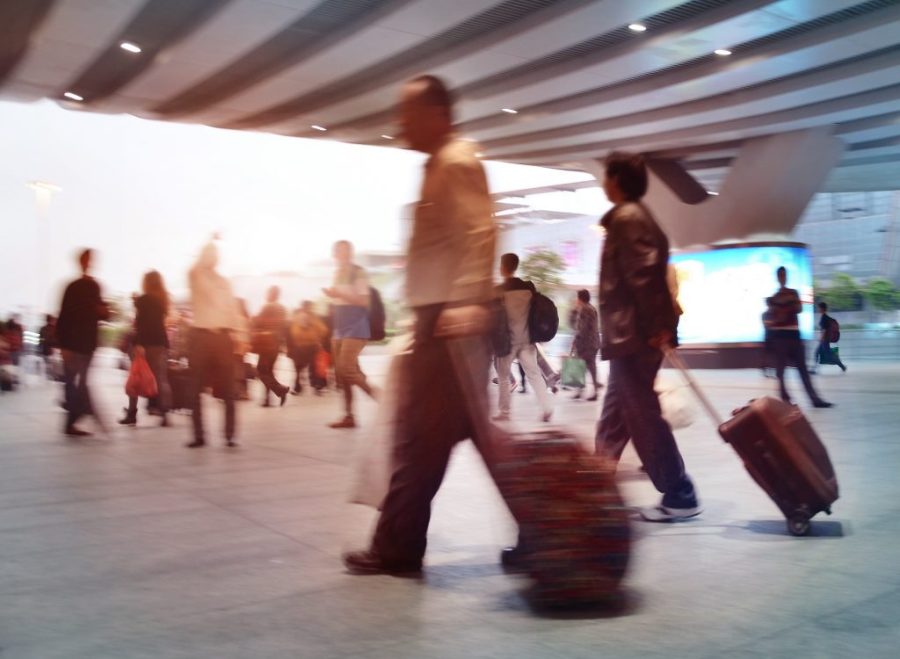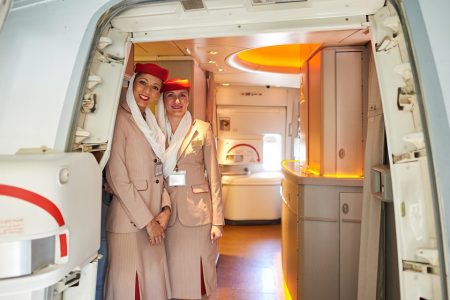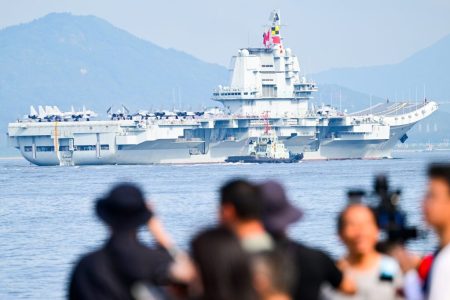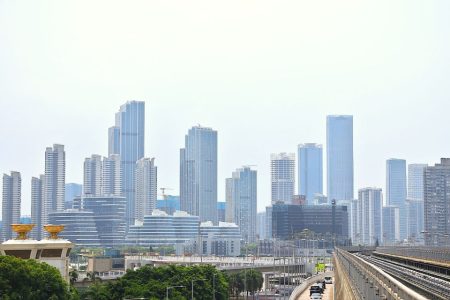With an area of 56,000 square kilometres and a GDP exceeding 22 trillion yuan in 2022, the Greater Bay Area (GBA) is an economic powerhouse that contributes substantially to the Chinese and global economy. However, its lasting success is contingent on the region’s relationship with the transport industry, according to two experts.
The two were speaking as part of a breakfast talk on Wednesday called “Transportation and tourism in the Greater Bay Area: A Deep Dive,” which was organised by the France Macau Chamber of Commerce (FMCC).
Alfred Ng, president of the Chartered Institute of Logistics and Transport in Macao, and Simon Chan, chairman of the executive committee of Macau International Airport (CAM) noted that the region has the infrastructure and population to sustain the continued growth of the transport system, but governments also need to provide the necessary support and policies.
To highlight his point, Chan mentioned how the expansion of Macao’s airport on reclaimed land needed the approval of the central government last year.
He also noted that “One of the biggest barriers [in air transport] is immigration and customs.” Speaking about the free flow of cargo in the GBA, he pointed out that “Right now, the cargo is able to be exported to Macao, but the cargo entering…[mainland] China through Macao is not possible. Macao is not allowed to [legally] do that.”
[See more: The Hong Kong-Zhuhai-Macao Bridge has just turned five]
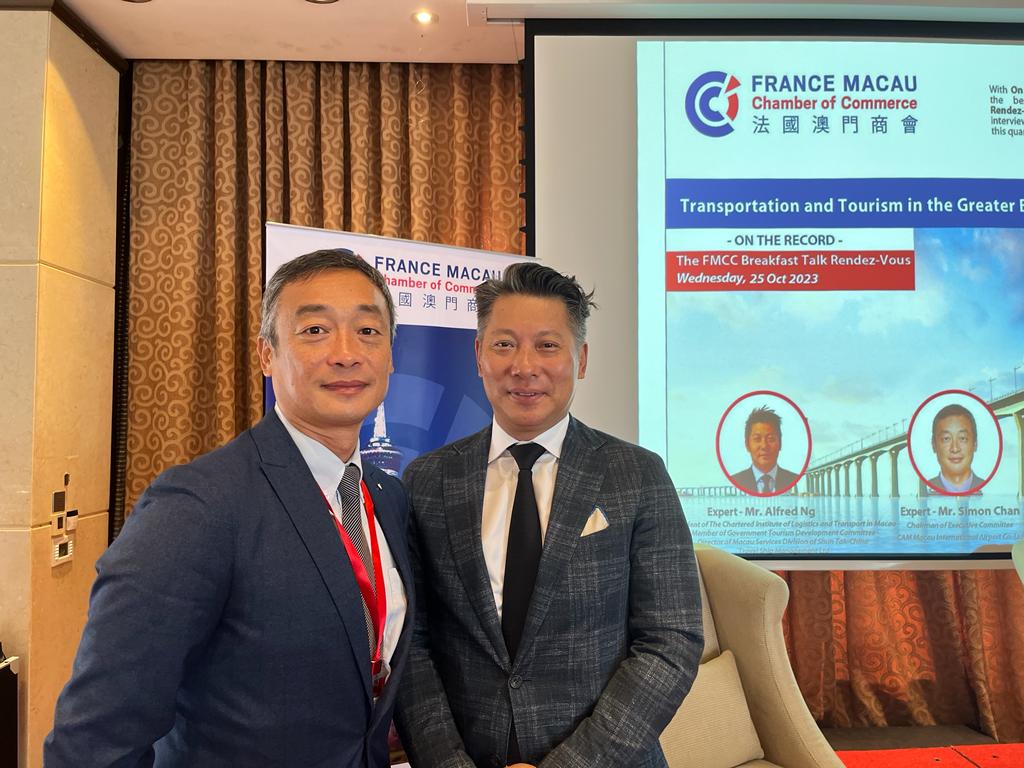
Ng, however, mentioned that in the post-pandemic era, the increased demand for travel has forced governments in the GBA to implement policies that are conducive to the travel industry. “More cars are [now] allowed to travel from Macao to Hong Kong, from Hong Kong to China, from Macao to China,” Ng pointed out.
The importance of connectivity to the GBA transport network was also emphasised. Chan, for example, discussed the trend of multimodal travelling in aviation and the 2016 agreements that Macau International Airport signed with Mainland China and Hong Kong that allow passengers to seamlessly take different modes of transport with their flight tickets.
The benefits of using technology in the GBA transport network was also brought up, with Ng emphasising that it “can help [passengers] to plan by time and by budget.”
Following the talk, the floor was given to members of the audience who asked a range of questions, including whether Macao International Airport had any plans to further expand its network following the introduction of a new route between Jakarta and Macao. Chan noted that Southeast Asia was a potential market in the short term, but the company would need to do more preparation.
The discussion with Ng and Chan was held under the auspices of the FMCC’s monthly Breakfast Talk Rendez-Vous meetings. Previous seminars have also centred around GBA-related topics, including the region’s financial markets and tax systems.

